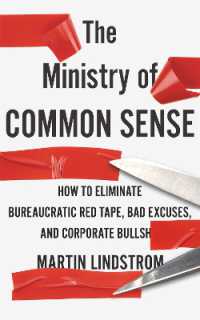Full Description
Set in the postcolonial city of Kinshasa (DR Congo), this ethnography explores how people with disabilities navigate debates about the just distribution of resources where there is little state organised welfare, and public perception of disability swings between the 'deserving' and 'undeserving'. Tracing a historic increase of disability due to polio and its long-term effects, this book examines two controversial livelihood activities that serve as informal alternatives to state support: a specialized form of international border brokerage across the Congo River, and a unique practice of bureaucratized begging that imitates state tax collection and humanitarian fundraising. Clara Devlieger examines how such activities shape ways that disabled people conceive the idea of becoming 'valuable people' in local terms: by supporting loved ones, many achieve high esteem against expectations, while adapting exclusionary models of urban personhood to include disability. Devlieger offers a new understanding of the complex dynamic between the imagined role of the state, international discourses of rights, and local experiences of disability.
Contents
Introduction: between 'Batu Pamba' and 'Batu ya Valeur'; 1. Becoming an 'Handicapé': navigating identity and membership, documents and rivalries; 2. Rome and the Romains: relationships and temporality on the edge; 3. Contractual dependencies: disability and the bureaucracy of begging for the documentaires of Kinshasa; 4. 'People who need rights'? Disability, entitlement, and the rightful giver in Kinshasa; 5. Becoming a responsable: negotiating parenthood and responsibility; Conclusion; Coda; References; Index.








